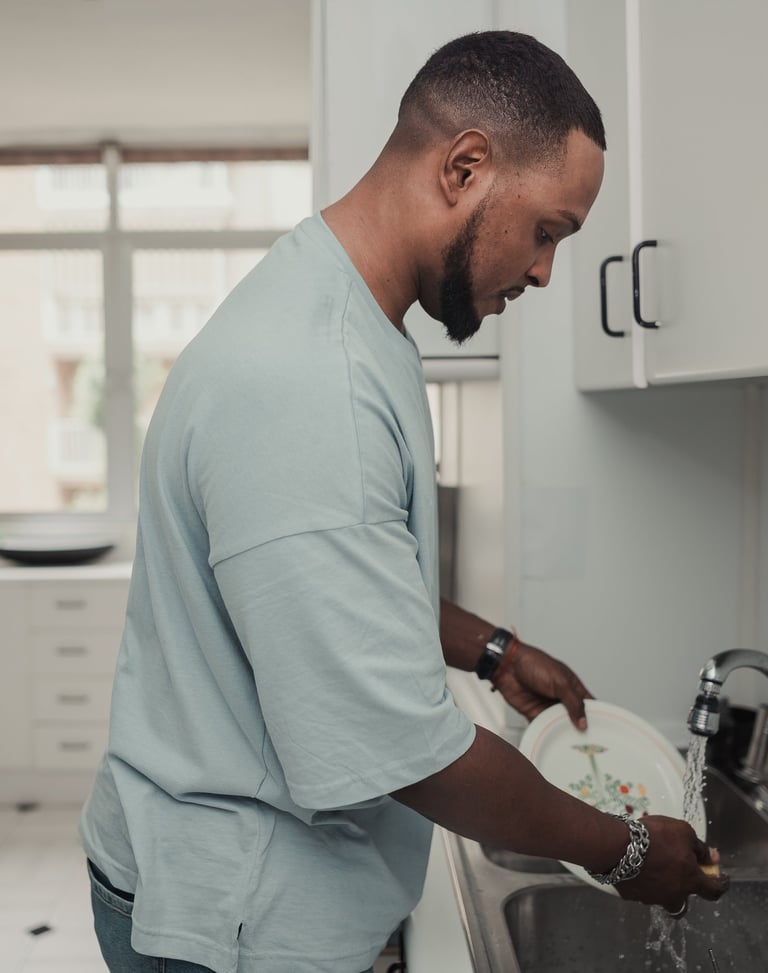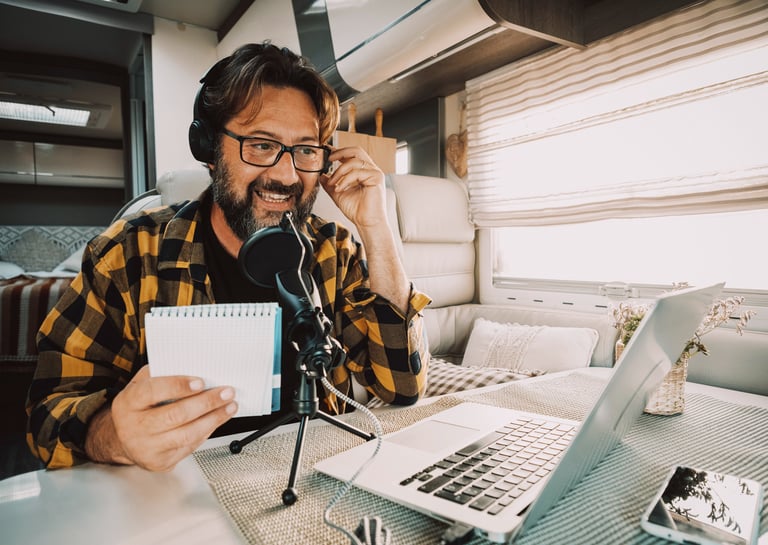HOW TO
Practice speaking when you're alone
If you don't have many opportunities to speak English in real life, you're not alone. Let's talk about how we can still get your English speaking practice done!


Finding opportunities to practice speaking is essential to improving. However, a lot of the people I work with don't have many opportunities to speak English in their real lives. Maybe you don't live or work in an English speaking environment and or maybe you're just not comfortable practicing new grammar ideas or vocabulary with real people. So, let's talk today about how to practice your speaking on your own. If you'd like to see all of this information in a youtube video instead, feel free to click here to be taken to a video I made on this topic.
First let's discuss exactly how you're going to do your practice. We'll start at level 1, with a method that will take no time out of your day, then move up to level 4, which is going to take a little more commitment, and a little more time, but will definitely give you better results.
Level 1 | Starting with something that's going to take no time out of your day, level 1 is to practice your speaking while you're doing something else. This could be washing the dishes, walking your dog, taking a shower. The important thing here is that you're busy doing something that you find relatively simple. So your body is busy but your mind is not.
Level 2 | At level 2 we're going to bring in a stopwatch or a timer to get more specific about your practice. Some people have the problem of not being able to talk enough on a topic. They say a few sentences, then stop, in which case you could challenge yourself to speak for maybe 2 minutes on a specific topic. Or maybe you have the opposite problem and you speak too much. Here we can use the same tool to challenge you to be more concise with what you're saying. You might be able to express your idea in 10 minutes, but can you communicate the same information in only 2 minutes.


Level 3 | The next step is to use a recording app to record what you're saying. If you record yourself speaking and listen back to the recording then you'll likely start to notice a few mistakes. When you're speaking your brain is busy deciding what to say, then building sentences, then actually saying them out loud. This is a really complicated process! When your only task is to listen to what you said and look out for mistakes you'll likely start to hear a couple, especially if you're using the ideas on the "how to use our sessions" page of this website.
Level 4 | It's a small step to level 4 now because all I'm going to ask you to do is to offset your recording and your listening back. By this I mean, if you record yourself speaking on a Monday, try to listen to that recording the day after, on Tuesday. By leaving some time, maybe a couple of days, between making a recording and listening back to it, you'll have forgotten what you were trying to say and you'll have to rely on your actually communication skills to help you understand what you were saying.


Now that we've discussed how you're going to practice, let's talk what what you're going to say. The best way to divide up your practice is by thinking in terms of time. We therefore have three categories that we're going to be thinking of. We're going to need to speak about the past, the present, and the future. When deciding what you're going to practice think about where you need the most practice, and also if we identified any particular tenses during our sessions that you might want to practice. Here are some topic ideas for talking about each of these time groups.
The past |
Tell a story from your life, talk about what happened at work last week, retell a news story that you remember from last year, answer a job interview question like "Can you tell us about a time you really impressed your boss?"
The present |
Talk about a project that you're currently working at work, talk about a story that's in the news right now and explain what's happening, discuss something you'd like to change in your home or maybe in your life, explain what is currently happening in a TV show you're watching or a book you're reading.
Random questions |
Using a random question generator is a great way to find speaking practice topics. I use question generators in a lot of the coaching sessions that I do. They help to take you in interesting new directions and often to challenge you to jump between tenses and to jump into topics that you might not be experienced speaking about. You can find a really good question generator here, or click here to try out the question generator I've built right here on this website.
The future |
Talk about a vacation or trip that you're planning, answer the job interview question, "where do you see yourself in 5 years?", discuss what you're going to do over the next couple of days or maybe next weekend, make some predictions about what is going to happen in a book you're reading or a TV show you're watching.


